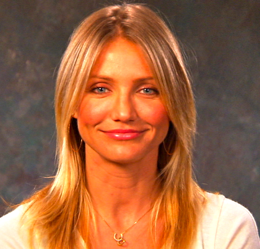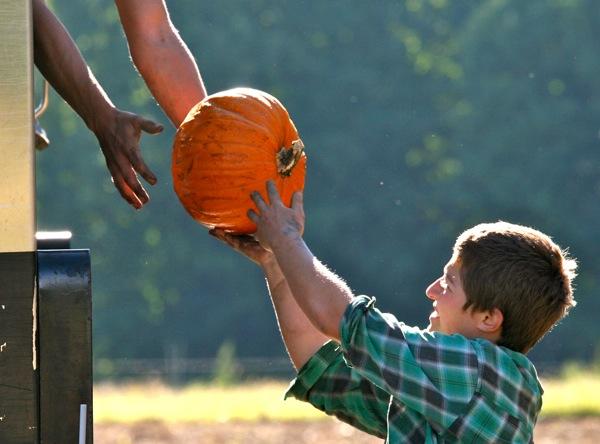I’ve heard or read Michael Pollan’s words so many times by now, if we ever were to meet, it’d feel like catching up with a familiar acquaintance. Nevermind he has no idea who I am, and aside from his positions on food and agricultural systems I don’t really know much about the man; he has a conversational and folksy style that conveys what he says is just plain truth, and he’s saying it because he wants what’s best for us. This style has endeared him to audiences of Oprah and Food, Inc. and the millions of readers of his books.
In the DVD package Nourish, which is comprised of a PBS special and eleven video shorts, Pollan delivers his same core messages. This time he’s surrounded by a chorus of like-minded, well-spoken advocates like Anna Lappé and chef Bryant Terry, who have both served as IATP Food and Society Policy Fellows for the W.K. Kellogg Foundation, one of the film’s major sponsors. If you’re familiar with the basic arguments for organic and local food, this 26-minute film likely isn’t going to tell you anything new. It’s Pollan 101: monocrops are bad, what your grandparents ate was good, it’s up to you to vote with your fork three times a day, etc. It’s a comforting and compelling message in a gorgeously shot and produced package. Cameron Diaz’ warm narration pushes the glamour factor over the edge, and what’s left is a movie as hopeful as Fresh and as cinematic as a National Geographic special.
 Where this film does stand out, though, is in its appeal to a school-aged audience. It’s clear from the beginning that the narrative is targeted to teens: messages are clear and concise, both in words and imagery. Just this week an accompanying curriculum guide was released on the Nourish site, with learning guides and action projects for middle school students. Black and white vignettes of articulate young people are interspersed throughout the film, explaining why the principles being learned are important to them on a personal and generational level.
Where this film does stand out, though, is in its appeal to a school-aged audience. It’s clear from the beginning that the narrative is targeted to teens: messages are clear and concise, both in words and imagery. Just this week an accompanying curriculum guide was released on the Nourish site, with learning guides and action projects for middle school students. Black and white vignettes of articulate young people are interspersed throughout the film, explaining why the principles being learned are important to them on a personal and generational level.
Part of me thinks Nourish should be shown in every middle- and high-school classroom in the country. The lessons are strong and important, and we need an inspired younger generation to fix the mistakes that have led to our current food system. Another part of me bristles at the idea of showing this movie to students who live outside of well-to-do suburbs and private schools. How do you parade a young urban teen through soft images of farmers markets and Whole Foods checkout aisles, bringing them to the brink of a real food utopia, and then drop them back into the food desert in which they live? Is it fair to ask them to buy organic and tell them it’s up to young people to make a difference, when they’re at the mercy of poverty, parents, and school administrators?
Clearly I’m of two minds when it comes to this. Nourish advocates at the nexus of where our food system is now, and where it could be in the future with the influence of younger generations. In doing so it skews towards the ideal at the expense of practicality, downplaying the systemic barriers to a food revolution. But maybe that’s what we need at this point. If Cameron Diaz and attractive peers make kids want to eat whole foods and support local and organic agricultural systems, I’m all for it. I just want to make sure they’re also given a realistic view of why things are the way they are now, and how much work it is to change eating habits, either on a personal or societal level. Granted, it also seems like blind hope and enthusiasm unbridled by reality might get us farther than the measured action we're plodding along with today. And who better to act on unrealistic expectations than teenagers, right?
One other highlight of the special is how it drew lines across countries and cultures to illustrate a more global picture. We see scenes from across the world, including a fish market in Japan, a seed bank in Norway, and an urban farm in New York. The connections between the international scenes were a bit weaker than I was hoping for. At the onset I thought we might be given something like a live-action representation of the Tacoshed project. Rather, the vignettes were generally isolated, yet highlight the global sources of our food. And ultimately this is what Nourish is about: getting us to think about where our food comes from, if we're happy with that, and how we might change this picture for the better in the future.

Leslie Kruempel likes bringing people together to talk about real food, whether it's through the Real Food Minnesota gathering, Twin Cities Crop Mob, or on Twitter. Follow her at @realfoodmn.




